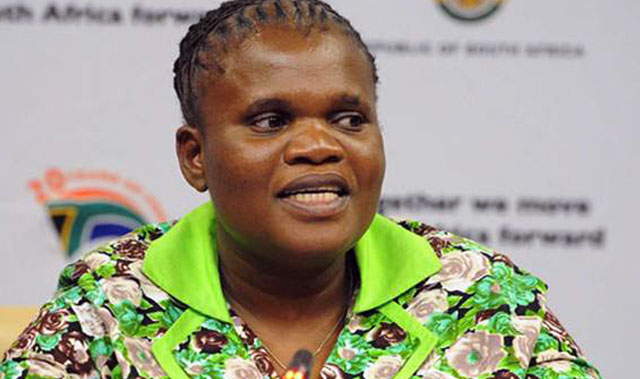 If you think that Faith Muthambi is the first politician to wreck the media party, then you simply aren’t paying attention.
If you think that Faith Muthambi is the first politician to wreck the media party, then you simply aren’t paying attention.
Take Ivy Matsepe-Casaburri, who was elevated to the post of minister of communications by Thabo Mbeki, to succeed Jay Naidoo.
At the time — and this is now hard to believe — South Africa was a nascent leader in Internet development. “Poison Ivy” quickly put an end to that by entrenching Telkom’s monopoly.
As always, this was sold as a pro-poor move, opening telephone lines to underserved areas. The poor were not impressed, and instead got mobile phones.
We plummeted down the Internet league tables. The Elephant Consortium, led by former director-general of communications, Andile Ngcaba, walked away with great riches. This is a story worth repeating to those who see government sweetheart deals and state capture as newly minted by the Jacob Zuma regime.
And let us not forget Eschel Rhoodie. His work to launch that bastion of quality journalism, The Citizen, led to the metaphorical defenestration of John Vorster. It wasn’t the plotting to undermine the sanctity of the press that did for Balthazar Johannes — every Broeder knew that the Engelse pers was evil and had to be stopped. Instead, it was the misappropriation of state funds that was deemed imprudent. What an innocent time that was.
So our Faith walks a well-trodden path. Nonetheless, she was given a sound slap by the good justices of the supreme court of appeal on Tuesday, as they derided her latest attempts to formulate a policy on set-top boxes as irrational.
Perhaps enough ink has been spilled already on the background, but here is a quick recap anyway.
Analogue TV signals crowd a vast swath of available spectrum. This is unnecessary, as new digital technology squeezes huge amounts of content into thinner slices of the spectrum. The spectrum freed up by moving to digital is to new communications businesses as Saudi Arabia is to the oil industry. We signed the Geneva 2006 agreement and were supposed to have completed the change by June 2015.
The original policy — issued 2008 — was very ambitious. It mandated set-top boxes which not only encrypted the signal, but allowed conditional access, messaging and many other goodies. That would mean that paying your TV licence would no longer be voluntary – in theory.
It also meant that TV broadcasters would get a cheap way to earn subscription cash. It is this last point that has been most misunderstood, as simple encryption is now all but meaningless.
The economics of the media business are beyond the scope of this diatribe, but the important bit is this: it is today almost impossible to pay for killer content by advertising income alone. Subscription income is the key. And you don’t get that unless you can cut off the non-payers.

The only player able to do so is MultiChoice, who got there by investing buckets of money into content and subsidising decoders. That investment is now paying off, and could be under threat if upstarts could enter the game while taxpayers subsidised the set-top boxes. One such upstart could be e.tv.
And then — as always in our fair land — backroom argy-bargy took place. Emotional scenes took place at e.tv board meetings. The SABC sold the family silver to MultiChoice. And, in early 2015, out of nowhere, our trusty minister suddenly reversed the migration policy, and encryption, and hence conditional access, was no longer policy.
People were shocked. Jackson Mthembu, then ANC spokesman, had a very public spat with the minister. E.tv lost the first case in the high court, but Tuesday won the appeal in Bloemfontein.
Google Translate is sadly lacking a setting to decipher the high legalese spoken by the learned justices of the supreme court of appeal. Otherwise the output from this judgment might be something like what follows:
The minister is confused and irrational. She has made no attempt to consult with the people who know what they are talking about, nor those who actually have the power she is trying to usurp. While it is difficult to understand what she is really saying in the policy, we can be sure that it is idiotic. We throw it in the garbage with contempt. And she must pay the considerable legal costs of her opponents.
In any normal country, this minister would be out on her ear. We know it won’t happen here.
- Russel Yeo has worked in the advertising and media business, and was the founding chairman of the Online Publishing Association, now IAB South Africa




